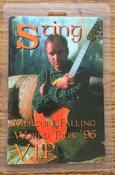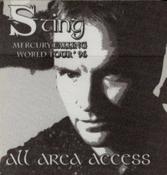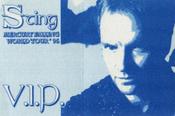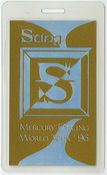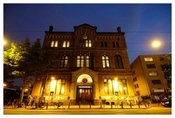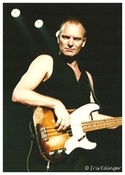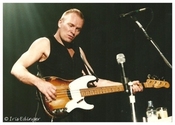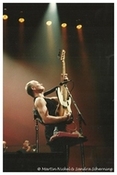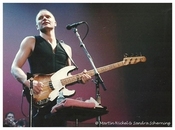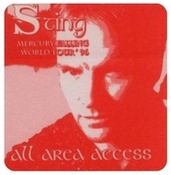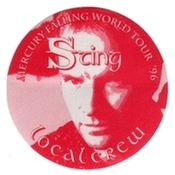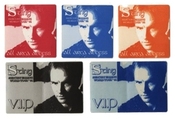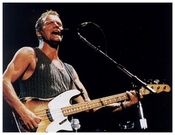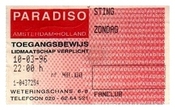
Sting generates little excitement at Paradiso...
Pop singer lost on slippery slope of success.
He's often called the aristocrat of pop music. However, this doesn't guarantee high-quality performances. The concert Sting gave Saturday night at Paradiso as a small-scale preview of his upcoming world tour was very mediocre. It wasn't the line-up that was the problem. In line with his broad musical interests, everything had been thought of: a black backing choir of four swinging girls, two wind instruments playing a whole arsenal from tuba to clarinet, rock guitarist Dominic Miller, and the original keyboardist Kenny Kirkland. Sting himself used his bass guitar as a third arm to conduct the orchestra.
Initially, the instrument was annoyingly loud, as if the audience needed not only to see but also to hear who was in charge. The choir didn't stand out; the keyboards and wind instruments sounded like a shrill squeak.
The sound gradually improved, but then the songs didn't always hold the audience's attention. After a warm-up with the old hits "If I Ever Lose My Faith in You" and "If You Love Somebody," Sting launched into a complete performance of his new CD "Mercury Falling." Blues, folk, jazz, country, and especially soul were fused into true Sting songs, with sometimes complex rhythm patterns and his ever-victorious voice. Nevertheless, it sounded rather tame at times, and the live set didn't add much excitement.
It was concerning that the audience was often already clapping before the band could even begin the next song. "The last time I played here was in 1977," Sting reminded the audience of his famous Police past, "were you there then?" Hardly anyone reacted.
Not that the audience was rude, because when the fire was rekindled halfway through with "Roxanne," everyone sang along. Dressed up with a tuba solo and a keyboard riff, this 1979 mega-hit was completely ruined for fans. Disappointment was apparently the prevailing sentiment for Freek de Jonge, who headed for the exit with his wife after forty-five minutes.
When Sting launched into the swaying "Englishman in New York," a different image suddenly shifted in front of the aristocratic image: here stood Phil Collins's brother. Blessed with a voice and musical insight, yet lost on the slippery path of easy success. A working-class son who'd much rather appear ordinary but couldn't be any more.
(c) Brabants Dagblad by Ann Bouwma

